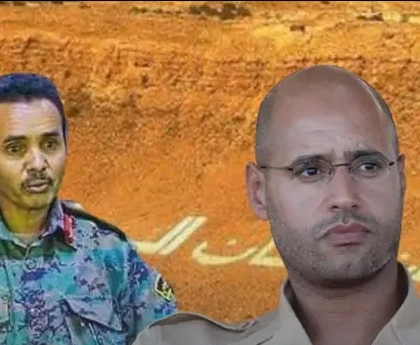In a powerful testament to the transformative potential of rehabilitation, Emmanuel Kirapash, a man who spent over two decades behind bars, has been granted a second chance at life.
Recently pardoned by President William Ruto through the Power of Mercy Advisory Committee, Kirapash’s story sheds light on the challenges of incarceration, the value of prison reform programs, and the importance of societal support for former inmates striving to reintegrate.
A Life Altered by a Single Verdict
In 2000, at the age of 24, Kirapash’s life took a dramatic turn when he was convicted of murder and sentenced to life imprisonment.
The ruling severed his ties with his young wife and two children, thrusting him into the harsh realities of Narok GK Prison. “All my ambitions and dreams vanished in an instant,” Kirapash recalled, reflecting on the emotional weight of his sentence.
The abrupt transition from a free man to a prisoner was a stark reminder of the consequences of being on the wrong side of the law.
For Kirapash, life in prison was far from the trivialized perception some hold. “Some people think being in prison is a joke. Life in prison is very difficult, and I can only advise everyone to stay on the right side of the law,” he said, emphasizing the profound challenges inmates face, from isolation to the loss of personal freedom.
Finding Purpose Behind Bars
Despite the hardships, Kirapash found a path to redemption through carpentry, a skill he honed during his time at Narok GK Prison. What began as a way to pass the time evolved into a craft that gave him purpose and structure.
Over the years, he became a skilled carpenter, spending countless hours crafting furniture and refining his abilities. This trade not only occupied his days but also instilled a sense of accomplishment and hope for the future.
Kirapash’s dedication to self-improvement extended beyond vocational skills. Now a born-again Christian, he credits the prison’s correctional programs for teaching him discipline, patience, and faith—qualities he believes have reshaped his character.
“I’ve learned things inside here that I never knew before,” he said, expressing gratitude for the opportunity to reform.
A Presidential Pardon and a New Chapter
Kirapash’s release marks a significant milestone, made possible by President William Ruto’s decision to grant him a pardon through the Power of Mercy Advisory Committee.
This act of clemency ended his life sentence, offering him the chance to rebuild his life after more than 20 years of incarceration.
Overwhelmed with gratitude, Kirapash publicly thanked the President and vowed to live responsibly as he prepares to return to his home in Kajiado County.
In a heartfelt gesture, Kirapash also sought forgiveness from his family, friends, and neighbors, pledging to live as a changed man.
His commitment to personal growth and accountability underscores the potential for rehabilitation within the prison system, particularly when inmates are given opportunities to develop skills and reflect on their past.
Support from the Prison System
The leadership at Narok GK Prison played a pivotal role in Kirapash’s transformation. Ms. Ann Rita Miti, representing the prison’s administration, described him as an obedient and hardworking individual who has fully embraced rehabilitation.
“He is now a polished carpenter. We believe he is fully reformed,” she said, highlighting the success of the prison’s vocational and reform programs.
Miti also called on churches and community members to support Kirapash’s reintegration, emphasizing that successful rehabilitation depends on societal acceptance.
“Rehabilitation can only succeed with encouragement and support from the community,” she noted, urging local leaders and residents to provide a welcoming environment for former inmates like Kirapash.
The Broader Implications of Kirapash’s Story
Kirapash’s journey highlights the complexities of the criminal justice system and the importance of rehabilitation over mere punishment.
His mastery of carpentry demonstrates how prison programs can equip inmates with practical skills, enabling them to contribute meaningfully to society upon release.
Moreover, his story underscores the role of clemency in offering second chances to those who have shown genuine remorse and growth.
However, reintegration remains a significant challenge for former inmates. Without adequate support, many struggle to find employment, rebuild relationships, or overcome the stigma associated with their past.
Kirapash’s call for forgiveness and Miti’s plea for community support reflect the shared responsibility of creating pathways for ex-inmates to thrive.
A Message of Hope and Caution
As Kirapash prepares to return to Kajiado County, his story serves as both a cautionary tale and a beacon of hope.
His advice to others is clear: staying on the right side of the law is far easier than navigating the challenges of incarceration.
Yet, for those who have served their time, his journey illustrates that redemption is possible with determination, support, and access to transformative programs.
For policymakers, Kirapash’s experience highlights the need for continued investment in prison rehabilitation programs, including vocational training and counseling, to prepare inmates for life after release.
For communities, it is a reminder of the power of acceptance in helping former inmates rebuild their lives.
As Emmanuel Kirapash steps into this new chapter, his story is a powerful reminder that while the road to redemption is long and arduous, it is indeed possible.
With his carpentry skills, renewed faith, and commitment to living responsibly, Kirapash is poised to turn his second chance into a meaningful future—proving that even in the darkest of times, hope and transformation can prevail.
Share This Post





